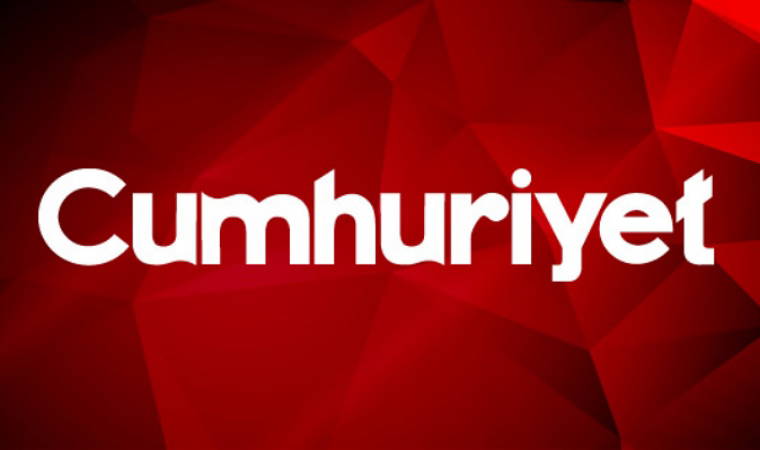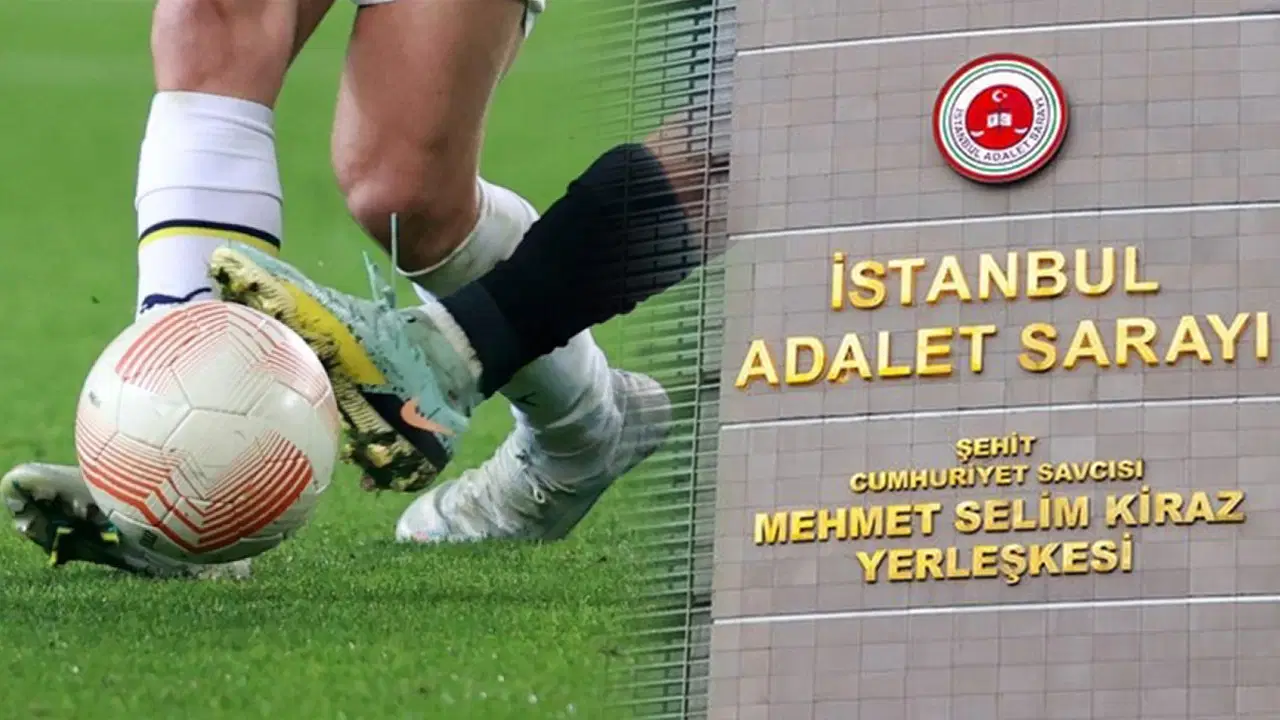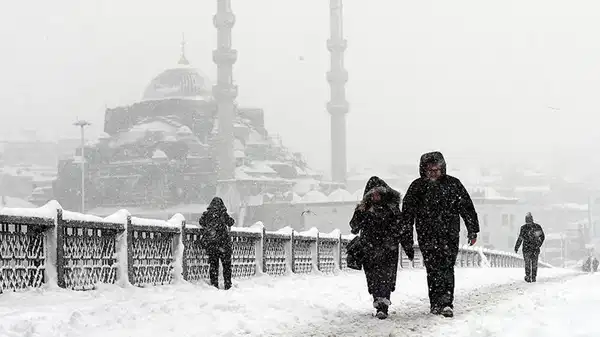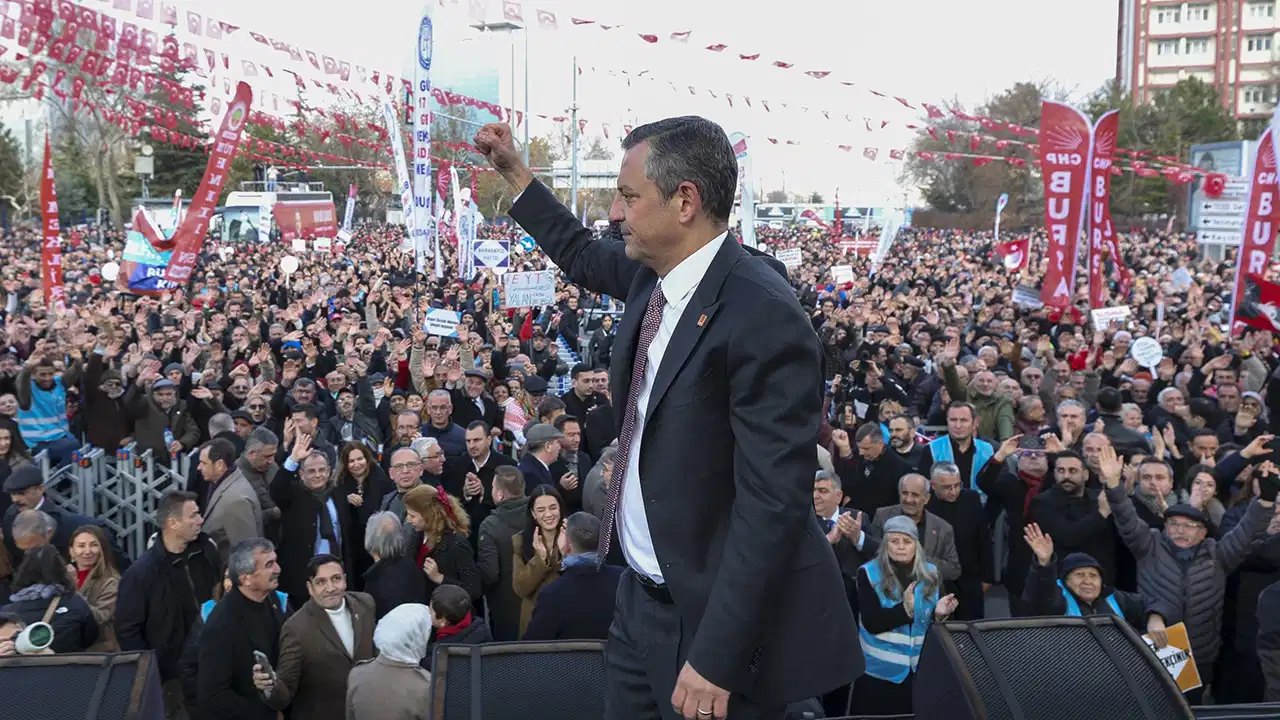
Tanıl Bora discusses a form of governance and ideology that is created around a single man and cult of the person under the heading ‘Erdoganism’ in his latest book
- There is a heading ‘Erdoganism’ in your book. What is Erdoganism and, were we to inquire with debate over the presidency in mind, are we entering the era of Erdoganism following Kemalism?
Erdoganism is essentially a notion that certain Western political scientists have recommended. So, from the ideological viewpoint of nationalist-conservative ideology it could well be ridiculed or disparaged! Of course, the concept refers to a form of governance and ideology that is created around a single man and cult of the person. As is generally the case with such classifications, it refers to a regime in which ideology and ideas can have maximum flexibility and in which the preeminence of power and the powerful ruler’s arbitrariness is dominant and decisive. It is a conceptualisation that can be considered, and lends itself to being considered, against examples such as Orban in Hungary, the Polish government and Putinism. This is a phenomenon of our time. In this structure, mostly nationalist and conservative but, in all cases, populist and powerful leaders directly address the people, having well and truly relativised and well and truly undermined the separation of powers, by-passed political parties and all rules of the democratic system and established administrative mechanisms, and virtually expropriated and laid claim to all representational mechanisms. It is a form of governance informed by the attitude: ‘The people or the nation are the direct source of power; this power is indivisible; I derived this authority directly from the people and nation and I will share it with nobody.’
- Can we say that the difference from the single-man rule of the 20th century is that institutions such as parliament, civil society and the judiciary continue to exist but in hollowed-out form?
Depending on circumstances, they are hollowed out, turned into full appendices of this power structure having been stripped of their autonomy or are altered to the extent that nothing but their names remain. As such, we are confronting a ‘contemporary’ phenomenon.
- Something belonging to the 21st century...
-Yes, the manifestation in Turkey of a new authoritarian configuration decked out in the strident colours of 21st century fascism. There are similar tendencies in many countries in the world that are at different levels of development. For example, there is a similar tendency in India.
- How would you describe the relationship between Erdoganism and Islamism? Is this a new Islamist regime, or, and Erdoğan has not used it for a long time, but there is the term ‘conservative democratic’.
There is a strong dose of Islamism in this cauldron, but this is not all. There is a wide nationalist spectrum ranging from what is called neo-nationalism up to the shade of ultra-nationalism that is brought into play as circumstances dictate. There is a Neo-Ottoman rhetoric that, to use a fashionable term, is ‘adjunctive’ to Islamism but with which we cannot simply equate it. Apart from this, standard state-security discourse is in vogue. Islamism is without doubt a very powerful factor and constitutes the frame, but an important characteristic of this ideological configuration is that its content and motifs can be pretty fluid. Depending on the state of play, on the need and on the circumstances, all manner of material can be pressed into service.
- The reason I asked this was that debate over secularism has come back to prominence since New Year and there has been a post in which an AKP mayor has equated defending secularism with terrorism. The parliamentary speaker advocates things such as removing secularism from the constitution. How do you assess Erdoganism’s relation with secularism?
The ideological borders drawn by that mayor are essentially based on the premise that pointing to absolutely any social or political differentiation is a crime in its own right, and that this amounts to separatism and amounts to factionalism. There exists a point of view that perceives talk of any distinctions in Turkish society, talk of any differentiation, to be ‘scratching the wound’ and ‘triggering the fault lines’, and advocates this as being treason. Secularism is also pointed to as one of these instances of treason. If you are going to talk about the secularism problem in Turkey, this is separatism, factionalism and thus grist to the mill of terrorism – this is the mindset. If we come to secularism in particular, then there is the issue that in Turkey secularism has undoubtedly always been a problem for the Islamist current. We can distinguish two attitudes. The first is a position that, making reference to the universal nature of secularism in Turkey or, for example, its moderate implementation that also maintains reverence towards religion as in Anglo-Saxon countries, the version in Turkey is different from this and is a very strict secularism – it says, as it were, ‘We want half decent secularism.’ As to the second attitude, this is the attitude that sees secularism as being innately incompatible with Islam. This second one is now coming to predominance. In a wholesale manner? Not to that extent. I think we can still find both tendencies within the Islamist current and (I do not use it synonymously) the AKP. But, I think in particular they have a strategy as a common denominator to push secularism back and derive it of importance as far as possible, and, just as secularism aimed to narrow the sphere for religion, to now restrict the sphere for secularism and secularists.
You have also included in your book Hayrettin Karaman’s article in the immediate aftermath of 15 July stating, ‘The nation that is worthy of saying/being called “our nation” belongs to the circles that adore President Erdoğan and in spite of everything have not totally lost their intrinsic values and have gained knowledge, experience and courage in comparison to the time of Menderes.’ Is the construction of this new nation an element of Erdoganism?
Of course. In any case, all nationalistic or national ideologies at the same time try to win the acceptance of the ‘nation’ for a specific definition of the nation, that is for their own definition of the nation. Nationalism is at the same time the fight over: ‘Who is the nation?’ Not only Erdoğan, but the AKP has its acceptance of what the nation is. It is no secret that this is based on a pious, conservative, Sunni and ‘loyal’ majority. What is called the ‘essential mass’ in traditional nationalist-conservative discourse. The AKP was also capable to an extent of including Kurds in the its discourse. It now still includes them by implication, but we see that they have attained a ‘problematic’ status that courts doubt. In short, on the one hand, there is the unadulterated nation, the organic nation, the nation in the true sense. On the other, there are the remainder who are somehow or other formally included within the nation, who are attached by the hollow tie of citizenship. The pronouncements ‘my people’ or ‘our people’ serve to draw an us-them distinction of this nature in terms of inclusivity.
- Does this not foster animosity towards them from the very outset
Of course. As soon as we define the nation with such content, with such innate characteristics, those who do not fit this definition are excluded from the nation. This is blatant discrimination. This is also related to the new authoritarian populism of which we have spoken. This is actually something that broadly speaking is in populism’s nature. It reduces the people or the nation to a specific characterisation of identity, a marking of identity; within this epic language different tendencies, different identifications and different preferences among the people and nation are erased. This passion for singleness and uniformity erases and increasingly blocks pluralism. This brings to mind the way Necmettin Erbakan would forever speak of ‘our nation’ and came under pressure from the nationalistic-ultranationalistic wing in particular to give a name to the nation. Along the lines of, ‘Who are you referring to, what is that nation?’ It was notable that he never said the ‘Turkish nation.’ This strategy both enabled Erbakan to refer to the nation in a sense that was synonymous with the community of believers and also, in a sense, made the definition of the nation conducive to stretching. Undoubtedly still with a nod and a wink in the direction of ‘those from among us’.
- In the book, you have also touched on this close relationship in discussing nationalism and its recourse to Islamism, and Turkish conservatism. This came as an astonishment for younger generations, because until 7 June the MHP gave the appearance of being a party that was part of Gezi and was resisting the domestic security bill along with the HDP and CHP, but all of a sudden there was a secret coalition. What lies within the ideological roots of this?
I cannot pronounce with great authority on the actual political motives, causes and calculations behind this alignment, but, from an ideological point of view, I can speak of what I have been able to observe about this. For one thing, I am going to repeat something that I said a little earlier. A dose of Turkish nationalism that is fairly compatible with that of the MHP is included within the ideology that shapes this ruling body, that the ruling body uses and refashions and that we can call our official ideology. That is, this alliance came about in conjunction with that ideological supplementation. Here, over and above content, or even prior to it, the style and air of Turkish nationalism and certain of its ritual elements that the MHP represents also play a role. For example, that famous reception squad dressed in garb representing the ‘Turkic states’ bears witness to this. Of course, there are also roots of this ideological supplementation that stretch back a long way. If you look at things from the aspect of conceptual and ideological trends, there is a joint umbrella defined first as being nationalist-pious then nationalist-conservative that stretches right back to the 1940’s and 1950’s. In fact, this is an umbrella that has never been fully closed. Within Islamism, there has been a tendency since the 70’s to depart from that umbrella, and that tendency has developed considerable momentum. Now, it is being reopened to assume tent-like dimensions.
- Abandoning the solution process and the flirt with the MHP was necessitated by political interests at the time, but how can we classify the AKP’s and Erdoğan’s attitude towards the Kurdish issue? After all, it undergoes a great deal of fluctuation. In places, things go as far as rallies under the flag of Kurdistan and the use of the term ‘Kurdistan’, and in places there is stance that denies the existence of a Kurdish issue.
In fact, the AKP initially expressed the intention to resolve the Kurdish issue. They embarked on this endeavour with an approach that was flexible to an extent that no right-wing party in Turkey has managed to accomplish. Whether or not they took it to heart is another matter and additional debate is most certainly demanded as to its democratic-antidemocratic nature, but the proposal of a ‘common Muslim identity’ was a solution project that, in the final analysis, had internal consistency. You know that in the meantime broader, more flexible approaches could have been witnessed that would not have so easily been squeezed into this slot. We are talking about a party that is able to win votes there in the region. However, as everybody also knows, there has been a massive rupture in the past few years.
- After the rupture, one cannot help asking which one is the true AKP?
One thing that I wonder – I ask because I really wonder – is what those AKP people who embraced this approach and defended the idea of solving the Kurdish issue under a common Muslim identity or within a democratic Turkey model and believed this in one way or another think now. I would really like to hear this but we are unable to hear anything like this.
- The personnel involved have been purged, for another thing.
One part has been purged. But the important thing is that part of them are unable to speak. However, we need to know and hear. Not only is it important in current affairs terms, but I am curious about this as one who deals with the history of thought in Turkey and trends in political ideology. Is this not in fact one of Turkey’s most pressing issues at the moment? It is impossible to speak of freedom of thought. It is impossible to speak of public opinion functioning in a real sense. For a variety reasons, many people who are capable of commenting cannot speak. This is a huge problem on its own.
- The idea has begun to be touted that, with the MHP having paved the way for the presidential system, it will melt into the AKP. What chance will there subsequently be for the nationalism represented by the MHP when faced with the AKP?
I cannot predict this, but I think that the following optimistic expectation whereby the MHP top brass may emerge from this exceptionally strong supplementation, a supplementation that we might call nothing short of symbiosis, alive and having preserved its independent existence is feasible: The MHP has profound historic experience of such things. This is experience that stretches back to the Nationalist Front governments in which they were included as a small party in the 1970’s and extends to their giving external support to the DYP governments in the 90’s. In these experiences, in terms of entering the civil service ranks, they were well rewarded particularly in terms of entry to certain parts of the public service. This underpinned their growth in the long term. They are most likely placing their trust in this. They must think that that they will be able to incrementally increase their own strength through opportunities to enter the civil service and though opportunities to exert an ideological influence. But will this optimistic (for them) expectation come to such trouble-free fruition? This is because what they will be cooperating with is a very powerful force with a very high capacity for absorption and energy for swallowing. The incorporation with great enthusiasm of their own ideological motives and political styles brings with it the risk of being swallowed while overjoyed at ‘our ideas are in power’. This is not an easy dance. I imagine that the MHP and the dissatisfied people in their environs are taking stock of these risks, probably before their concerns over the constitution and regime. The bad memories of the turmoil caused in the MHP by the coalition governments of the 1990’s and 2000’s may increase such concerns. It appears that the MHP will fluctuate between these two poles, and as to the extent and result of this, I have no way of knowing.
- We are crossing a very critical threshold. Voting on the presidential system is continuing and if we pass to such a system a totally new era will start for all Turkey’s political currents. Various potential coalitions will disappear, but other pre-election coalitions may emerge. It appears that the right-wing block will continue along the MHP-AKP axis. How do you assess the left’s current standing against this backdrop?
When you say ‘left’ I take it you mean at least everybody who appears to be on the left when seen from the right. This is probably the most cut and dried definition!
- Yes. The left with the broadest of brushes.
When these massive, grave, urgent and burning prospects we are speaking of are involved, it may be necessary to relativise left-right distinctions. It may be necessary to expand common denominators to the limit as far as democracy or even the minimum degree of civilisation is concerned. I think that the left must not make do with navel gazing and the left simply addressing the left. Undoubtedly, intra-left and inter-left dialogue and cooperation is important and valuable, but politics is not a game that revolves within the left. It shouldn’t be.
- How do you assess the HDP?
Despite this enormous pressure on the HDP and the attempt that surpasses pressure to destroy it and discount it, I think the HDP has displayed admirable common sense. The HDP was criticised especially at the outest of last year’s period of conflict for not having taken a sufficiently decisive stance against the rising violence. Such criticism can be made, that is a separate matter, but despite this enormous pressure, despite facing a multitude of accusations and in a sense being unable to curry favour with anybody, I find that its insistence above all on speaking its mind and its efforts to furnish democratic politics with content inspire admiration.
- OK, and the CHP?
I get the impression that the CHP has a body of MPs who are dynamic and in command of their own voices and ideas to an extent that has not existed in previous periods. There is great effort. But, sometimes, MPs all appear to be beavering away on their own. As if they are unable to come onto the field as an eleven.
- There’s a problem with the coach, I dare say.
That’s not what I’m driving at. What I am getting at is, for example, in principled and major matters such as parliamentary immunity, or in other serious and important situations, there is a failure for it to stage an effective, powerful presence as a party. I think this has something to do with its inability to shed itself of ‘state party’ conservativeness as an entity.
In speaking of the CHP and left, I will return once more to the same point. The left has its own neighbourhood; each component of the left has its own neighbourhood. Everyone is speaking in their own neighbourhood. Of course, we must not lose sight of the fact that there are huge barreirs to addressing those outside of one’s own neighbourhood. We are in a country in which people are even blocked from watching parliamentary debate. The state of thought and press freedom is common knowledge – after all, we are having this conversation at Cumhuriyet. Apart from the institutional barriers, we are in an environment in which every word is instantly buried through monstrous aspertions, campaigns of slander, lies, defamation and browbeating. It is also under immense pressure and its most pressing business is solidarity and people have to rush to somebody’s assistance like the fire brigade day in day out. It expends all its energy on this. All right, but I don’t think this should be an excuse for those who are engaged in politics. I don’t think there can be politics in the true sense without making your voice heard in other neighbourhoods, creating contact with other neighbourhoods and reaching out to them.
- We can observe a balance said to be 60-65 percent on the right and 35-40 percent on the left; an artificial balance actually.
Not long has passed since the 7 June election. One of the greatest calamities of this new regime in Turkey is the creation of pressure that conditions people not to listen to or hear anybody apart from those they reckon to be like themselves and increasingly not to consider them to be human. This is one of the most important tools of the reigning ideology. I think this has to be challenged. To do so, it is necessary to arm oneself with a different morality and a different language and without fail persist in the determination to address those who do not resemble oneself. I am aware that it is very difficult. A propaganda strategy is in place to make doing just this impossible.
- If we turn to daily politics, you are probably saying that over all issues there is a need to approach both voters who vote for the AKP or MHP, and also voters who vote for the CHP and HDP, with a minimum programme designed to transcend polarisation somewhat. In any case, the discounting of AKP voters by polical actors who claim to be opposed to the AKP benefits the AKP most of all.
Yes. But I just don’t think of this in terms of the simplification: ‘One side knows the truth about everything, so it is enough to spill the beans and tell everyone about this truth.’ There may be something that can be learnt from this encounter and this experience.
- One issue that you have devoted a lot of attention to is lynching. We witness an increase in the number of attempted lynchings directed at the HDP and Kurds. On top of this, the attempt to lynch Barbaros Şansal on the airport tarmac and the attempt to lynch somebody who resembled the Reina assailant courted attention.
It is as though all sense of shame has been lost. When lynching becomes commonplace, it may lead to consquences that perturb the rulers themselves, or even those who use those lynch mobs as, to use an expression I always employ, as a crisis management method. Those in power were not in the least troubled by the Şansal event that was a scandal that brought the state’s very status as a state into question, but, for example, things such as ‘citizens should not succumb to such provocation’ were heard to emanate from the rulers themselves with reference to the latest actions targetting HDP buildings. About those who raise citizens’ ‘passions’ with such verve, nobody says anything.
- Do you think this sitution also stokes up fear of internal conflict?
The most important thing in my view is that, if we are in a position in which we are capable of having such concerns and are capable of expressing such things, it is necessary to stop and take a look. This does not resemble the theorems developed by moving various imaginary pawns here and there by people dubbed strategy experts on television stations. If society is living in an atmosphere in which people feel this fear and which makes the feeling of this fear commonplace and unleashes this fear on them, this, this itself, is as serious as those implied and imagined dangers.















